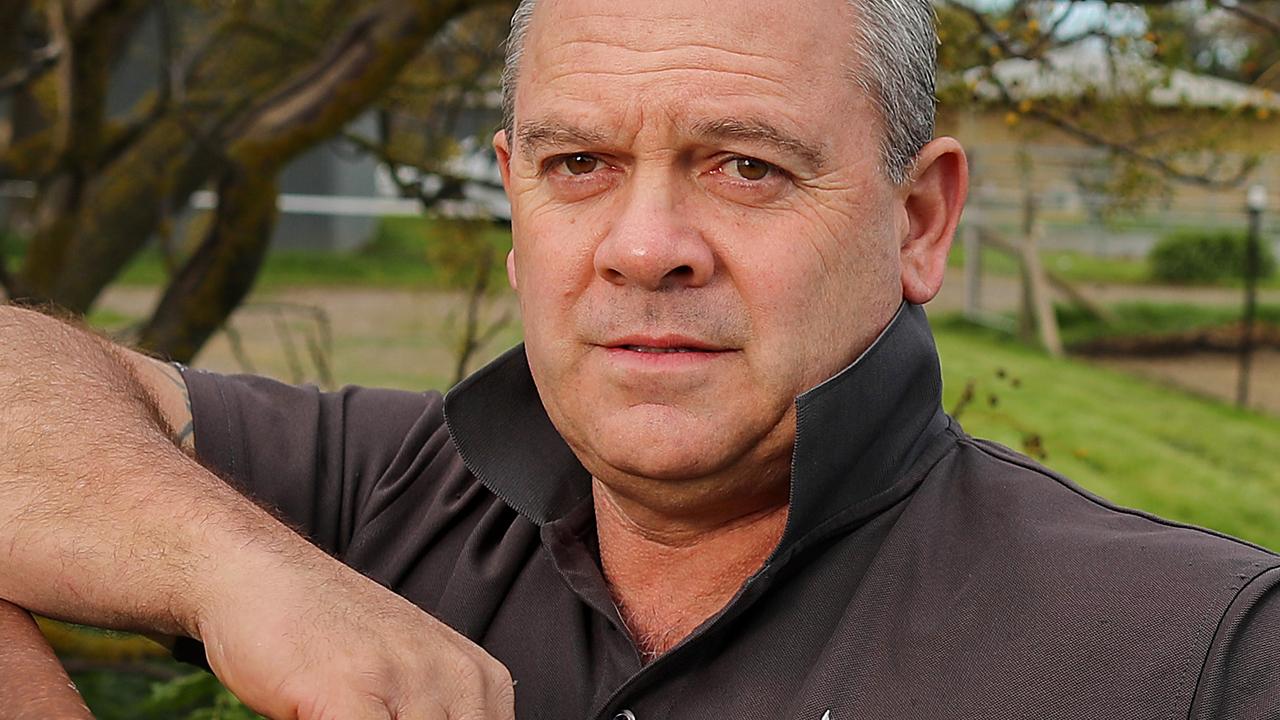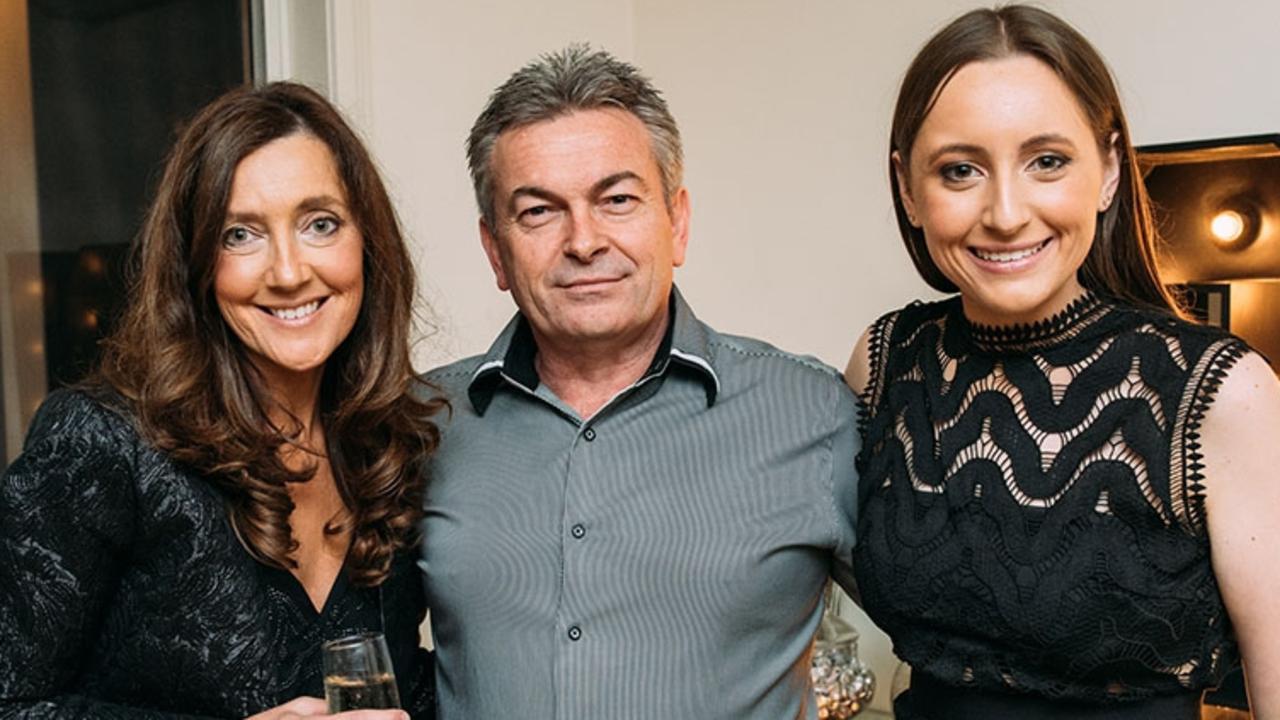Andrew Rule: Where there’s trash, there’s trouble
There’s a reason The Sopranos characters were in the “waste disposal” business. As Andrew Rule writes, the dodgy side of the industry sweeps up disgraced ex-cops and other toxic characters.

Greetings to honest, law-abiding waste disposal operators and their lawyers. This is not about you and your clients. It’s more about the bad guys. You know who they are, even if you don’t talk about it publicly.
You know some of them are outlaw bikies, some are mafia mobsters, and some are worse trash than the stinking stuff they dump at night. It’s no accident that the chillingly realistic New Jersey gangster characters in The Sopranos are in the waste disposal business.
Waste makes a reliable income stream for anyone who can corner the market the way the mafia can — proof of the old saying, “Where there’s muck, there’s money.”

So much money that there are many totally legitimate operators in the business in Australia. In fact, one of the bigger lawsuits in the land is being fought right now by some of those legitimate operators. That being the epic struggle between prominent Sydney-based brothers Charif and Tony Kazal and some heavy hitters in Sydney’s legal, political and business establishment.
It’s a bitter fight that landed in the Federal Court last week after starting in the Supreme Court two years ago, with a preliminary skirmish in a Cayman Islands courtroom. The bottom line: Kazal v Rodric David (and others) is about who gets to make hundreds of millions of dollars from the spanking new Eastern Creek waste and recycling facility.
The Kazal brothers have recruited well-known Melbourne spin doctors and lawyers because, they claim, they have been frozen out by what Bill Shorten would call the big end of Sydney town.
Eastern Creek, of course, is not some fly-by-night toxic dump operated by faceless felons. It is a shining example of how to recycle rubbish and save the world. But its existence, and the legal stoush over $200 million, proves just how lucrative the waste business is ... which is why not everyone involved in the game south of the Murray has clean hands, so to speak.
The stench that hangs over tips is the smell of money. It attracts vermin as well as rats and snakes.
Such as one figure in Sydney’s underworld, a nasty bastard who once sued respectable crime writers for surmising he was a “drug dealer” because he’d been charged more than 20 times for drug trafficking over that many years.
Let’s call him Paddy — he’s known as an illegal brothel owner, and maybe a murderer, but has never actually been convicted over dozens of drug arrests. That unreal acquittal rate suggests he bought off the best bent police that money could buy.
Extra proof that Paddy did business with corrupt cops came when the crime writers arranged to meet him to settle the “defamation” before it got to a notoriously plaintiff-friendly Sydney court. The meeting was set up by Roger Rogerson, then a disgraced ex-policeman though not yet convicted of murder.

Paddy might have terrified sex workers and junkies but he was wary of Rogerson. The feeling was mutual: soon after, Rogerson mentioned that Paddy was running trucks of waste to dump on a country property just out of Sydney.
Rogerson’s story checked out with Paddy’s former “associates” and nervous neighbours, not least his former mother-in-law, who insisted Paddy had got away with killing her daughter (mother of his children) and making it look like suicide.
These are the sort of reptiles who dump toxic waste. The more toxic the better, given the massive profit to be gouged by charging a fortune to get rid of dangerous material then cutting costs by simply dumping it or storing it illegally — apparently without much risk of prosecution.
This is a staple organised crime racket in countries like Italy, which has supplied Australia with mafia families and adulterated olive oil since the 1920s.
Roberto Saviano’s Gomorrah, a savage denunciation of the Naples mafia, the Camorra, is one of several books that reveal how toxic waste has tainted entire provinces.
Farmers plough fields and uncover huge caches of waste buried just under the surface. Sheep and cow milk tests positive for the deadly poison dioxin, tipped on pastures by mafia tankers. Baby animals are born dead or with sickening deformities. And so on.
That is what happens when evil people sell out the rest of us for their own short-term gain.
It seems Australia is a soft target for waste racketeers. There are huge profits to be made (as with illegal “chop chop” tobacco) but prosecutions are few and punishments weak.
Crooks ignore the anaemic Environment Protection Authority — not so much a toothless tiger as a timid tabby that has hardly caught a rat in decades.
Some say that heavies use “patsies” as false fronts to set up dumps and bogus storage facilities in industrial suburbs and rural properties.
Local residents are angry but scared — of standover tactics but also of wrecking their own property values by going public. And so many turn a blind eye to the mini-Chernobyl in their backyard until it’s too late.
Is that why Australia has had a string of sinister toxic waste fires in recent years?
One such fire involves a man well-known in the early 1980s for his flamboyant business practices.
He once had his face rearranged with a baseball bat reputedly swung by Christopher Dale “Rentakill” Flannery. The fractured nose was actually a lucky break for the “businessman”, as Rentakill usually used a gun and a bag of lime.

Exactly why he was beaten up by a paid Sydney standover man is a mystery. But form like that makes it unsurprising that his name bobs up in connection with a warehouse full of toxic waste that catches fire.
Chemical waste is often highly flammable. Investigators will be pondering if torching an illegal dump is a greedy sociopath’s way of hiding the quantities and origins of the devil’s brew in the rusty drums.
Meanwhile, creeks are poisoned with toxic run-off, hundreds of family homes are subjected to dangerous smoke and fumes and dozens of firefighters risk lungs and lives to put out fires that look like visions of hell.
What sort of person might be involved in such a racket? Someone like Graham Leslie White, a creepy man who got six months’ jail this year after police found his stash of loaded guns in a creepy secret room built for that purpose in his creepy house at Wallan last July. White’s arsenal included an Armalite assault rifle that can be used as a machine gun, a loaded pistol under his bed and a collection of knives and other weapons as spooky as his decor of skeletons, skulls and red paint.
County Court judge John Smallwood said White’s personality was as “scary” as his weapons, which could have done “unthinkable damage” in a crowd.
It is not a great character reference for a man being investigated for the illegal dumping of up to 19 million litres of toxic waste in eight warehouses across the northern suburbs.
It gives the term “white trash” a whole new meaning.



